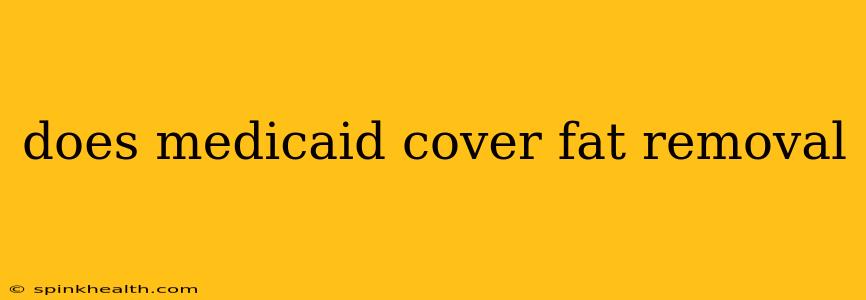Does Medicaid Cover Fat Removal? The Truth Behind Cosmetic Procedures and Public Assistance
The question of whether Medicaid covers fat removal is a complex one, and the answer, unfortunately, isn't a simple yes or no. It all hinges on the why behind the fat removal procedure. Imagine this: Sarah, a single mother working two jobs, struggles with excess abdominal fat causing debilitating back pain. John, a successful businessman, desires a more sculpted physique. Both may seek fat removal, but their situations differ drastically in the eyes of Medicaid.
Let's explore the nuances of this situation and unravel the common questions surrounding Medicaid and cosmetic procedures like liposuction.
What is Medicaid, and what does it cover?
Medicaid is a joint federal and state program providing healthcare coverage to millions of low-income Americans. It's designed to address medically necessary procedures and treatments, focusing on improving health and well-being. This is where the crucial distinction lies. Medicaid prioritizes treatments that address health problems, not aesthetic enhancements.
Does Medicaid cover liposuction for weight loss?
The short answer is generally no. Liposuction primarily serves cosmetic purposes, aiming for a more desirable body shape. While weight loss might be a beneficial side effect, it's not the primary medical reason for the procedure. Medicaid prioritizes treatments directly addressing health issues, not improving appearance.
When might Medicaid cover fat removal procedures?
There are rare exceptions. Medicaid might cover fat removal if it's deemed medically necessary to address a specific health condition. This is often the case with:
- Lipedema: This condition causes abnormal fat deposits, primarily in the legs and arms, leading to pain, swelling, and mobility issues. In such cases, fat removal might be medically justified to alleviate these symptoms and improve quality of life.
- Lymphedema: Similar to lipedema, lymphedema involves swelling due to lymphatic system dysfunction. Fat removal may be necessary to manage the swelling and associated complications.
- Removal of lipomas: These are benign fatty tumors that can cause pain or discomfort. Surgical removal would be considered a medically necessary procedure.
In these situations, the procedure must be recommended by a physician and justified based on its medical necessity, not merely for cosmetic reasons. The application process will involve thorough medical documentation demonstrating the direct link between the fat removal and a diagnosed medical condition.
What are the alternatives to liposuction covered by Medicaid?
Medicaid is more likely to cover alternative treatments aimed at weight management and improving overall health, such as:
- Dietary counseling and nutrition programs: These support healthy eating habits essential for weight management.
- Weight loss medications (with physician approval): Certain medications can aid in weight loss under strict medical supervision.
- Bariatric surgery (in select cases): For individuals with severe obesity and related health complications, bariatric surgery might be considered a medically necessary procedure.
How can I determine if my fat removal procedure is covered by Medicaid?
The best approach is to contact your state's Medicaid office directly. Your physician should also provide documentation detailing the medical necessity of the procedure, linking it to a diagnosed health condition. Pre-approval is often required before undergoing any procedure, so initiate this process well in advance.
In conclusion, while Medicaid is designed to provide crucial healthcare coverage, it doesn't typically cover fat removal procedures intended solely for cosmetic enhancement. However, exceptional circumstances related to specific medical conditions might warrant coverage. Always consult your physician and your state's Medicaid office for accurate and personalized information. The journey to better health is multifaceted, and understanding the boundaries of coverage is crucial.

